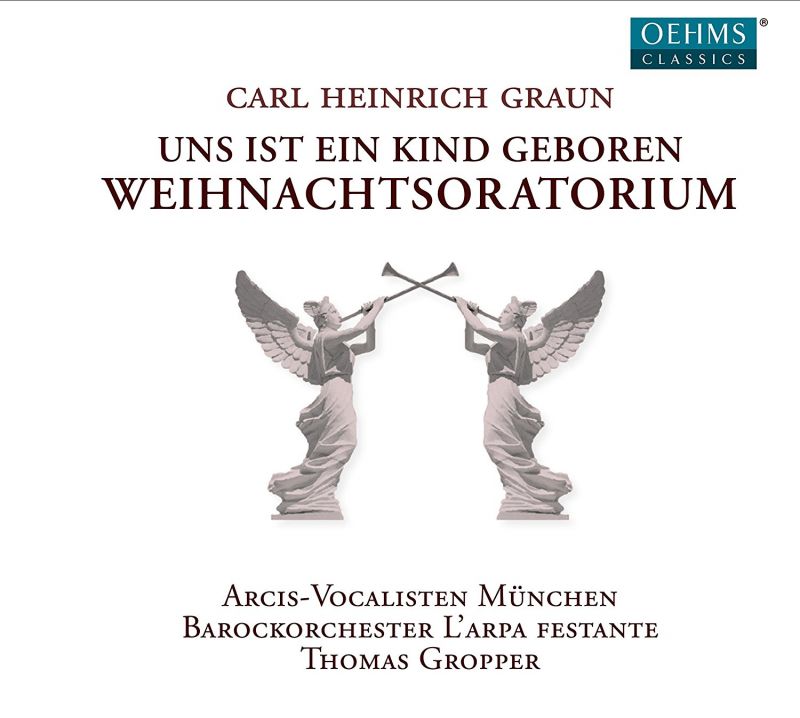GRAUN Weihnachtsoratorium
View record and artist detailsRecord and Artist Details
Composer or Director: Carl Heinrich Graun
Genre:
Vocal
Label: Oehms
Magazine Review Date: 12/2017
Media Format: CD or Download
Media Runtime: 79
Mastering:
DDD
Catalogue Number: OC1876

Tracks:
| Composition | Artist Credit |
|---|---|
| Christmas Oratorio |
Carl Heinrich Graun, Composer
Arcis Vocalists, Munich Carl Heinrich Graun, Composer Georg Poplutz, Tenor L'Arpa Festante Ensemble Marion Eckstein, Contralto Monika Mauch, Soprano Raimund Nolte, Bass Thomas Gropper, Conductor |
Author: David Vickers
However, Graun’s finely crafted arias are performed by accomplished soloists. Georg Poplutz sings with stylishness and sincerity (albeit occasionally a little strain): ‘Erfülle mich, du holdes Wesen’ has the distinctive colour of two bassoons, and there is a five-string violoncello piccolo doubling the tenor voice throughout ‘Ew’ger Sohn, erhaltner Segen’. Raimund Nolte’s searing ‘Abgrund krache, Tod erzittre’ conjures pseudo-operatic turbulence, whereas there is serene pastoral delicacy in Monika Mauch’s ‘Zeit und Stunde sind erfüllt’ (featuring attractive concertante flutes). Mauch and Marion Eckstein combine gorgeously in the duet ‘Herr, im Frieden will ich sterben’ (featuring a gentle pair of horns) – moments like this make it easy to admire Graun’s masterful utilisation of varied instrumentation and melodicism. Oehms’ omission of the libretto (let alone an English translation) is unhelpful.
Discover the world's largest classical music catalogue with Presto Music.

Gramophone Digital Club
- Digital Edition
- Digital Archive
- Reviews Database
- Full website access
From £8.75 / month
Subscribe
Gramophone Full Club
- Print Edition
- Digital Edition
- Digital Archive
- Reviews Database
- Full website access
From £11.00 / month
Subscribe
If you are a library, university or other organisation that would be interested in an institutional subscription to Gramophone please click here for further information.




